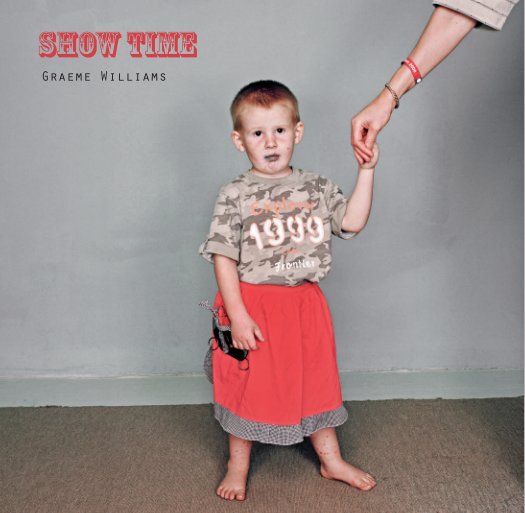Über das Buch
These portraits were taken at agricultural shows throughout South Africa during 2008. Shows of this nature have been a tradition within the Afrikaner community for many decades. They initially served as a way of bringing farming communities together and to raise standards in agricultural production. Over the years they have grown into celebrations of Afrikaner culture and a forum for common interests. They are one of the few remaining Afrikaner cultural events that have survived post-apartheid change.
The portraits are an attempt to capture the faces of this cultural group in a way that situates the intimate and personal against the backdrop of cultural identity. The subjects were invited to stand for a portrait within a makeshift studio, set up at small, rural town shows. The resulting images with their simple backgrounds coupled with the undirected and unguarded poses of the subjects, allows the viewer to focus on the individual’s personality, within a very culturally specific context.
The past century has been a tumultuous period for Afrikaners. At the end of the 19th century they rebelled against British colonial rule in South Africa, and vacating the south of the country, the Cape, they embarked on the ‘Great Trek’ into the hinterland. The Boer War followed and Afrikaners struggled to find their place in the developing Union. The 1940s saw the rise of Afrikaner Nationalism and the election of the National Party in 1948.
After 46 years of apartheid rule, President F W de Klerk was pressurized to hand over power to the African National Congress.
Since 1994, Afrikaners have struggled to come to terms with becoming a minority group whose culture and lifestyle is very different from that of the majority. The consequence of the group's loss of power and status has inevitably led to an enormous revision of cultural identity both within the group and towards the group.
The portraits are an attempt to capture the faces of this cultural group in a way that situates the intimate and personal against the backdrop of cultural identity. The subjects were invited to stand for a portrait within a makeshift studio, set up at small, rural town shows. The resulting images with their simple backgrounds coupled with the undirected and unguarded poses of the subjects, allows the viewer to focus on the individual’s personality, within a very culturally specific context.
The past century has been a tumultuous period for Afrikaners. At the end of the 19th century they rebelled against British colonial rule in South Africa, and vacating the south of the country, the Cape, they embarked on the ‘Great Trek’ into the hinterland. The Boer War followed and Afrikaners struggled to find their place in the developing Union. The 1940s saw the rise of Afrikaner Nationalism and the election of the National Party in 1948.
After 46 years of apartheid rule, President F W de Klerk was pressurized to hand over power to the African National Congress.
Since 1994, Afrikaners have struggled to come to terms with becoming a minority group whose culture and lifestyle is very different from that of the majority. The consequence of the group's loss of power and status has inevitably led to an enormous revision of cultural identity both within the group and towards the group.
Eigenschaften und Details
- Hauptkategorie: Kunst & Fotografie
-
Projektoption: Quadratisch klein, 18×18 cm
Seitenanzahl: 98 - Veröffentlichungsdatum: Dez. 16, 2012
- Sprache English
Mehr anzeigen
Über den Autor
Graeme Williams
Johannesburg, South Africa
My work is housed in many permanent collections including, The Smithsonian (USA), Duke University (USA) and The South African National Gallery. I have staged solo exhibitions in Johannesburg, New York, London and Paris and have contributed to many combined exhibitions on contemporary South African photography; including the 2011 Figures and Fictions exhibition at the Victoria and Albert Museum and the 2014 Apartheid and After exhibition at Huis Marseille in Amsterdam. During 2013 I was awarded the POPCAP Prize and the Ernest Cole Book Award.


